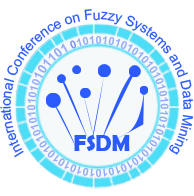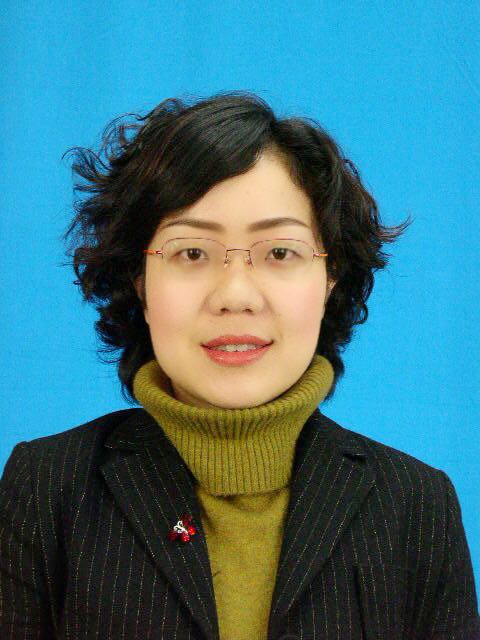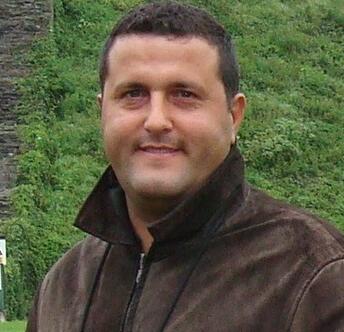Keynote Speakers
Dr.Witold Pedrycz, Professor (Life Fellow, IEEE)
Canada Research Chair (CRC) in computational intelligence with the Department of Electrical and Computer Engineering, University of Alberta, Edmonton, AB, Canada;Polish Academy of Sciences, Systems Research Institute, Warsaw, Poland.
Speech Title: Credibility and Interpretability/Explainability in Critical Applications of Machine Learning: An Environment of Granular Computing
Abstract: Over the recent years, we have been witnessing numerous and far-reaching developments and applications of Machine Learning (ML). With the plethora of applications found in critical areas such as autonomous vehicles, health care, networks, complex decision-making environments.
Two interrelated challenges become more apparent, namely credibility and interpretability/explainability. Both of them directly impact the acceptance and usefulness of ML constructs in a real-world environment. The credibility is also of concern to any application, especially the one being associated with a high level of criticality.
The notions of interpretability and explainability are formulated and we show how they are realized through a number of auxiliary models built upon the black models of ML constructs. Model-agnostic explainable models are discussed.
Proceeding with a conceptual and algorithmic pursuits, we advocate that the above problems could be formalized in the settings of Granular Computing. We show that to credibility any numeric result be augmented by the associated information granules and the quality of the results is quantified in terms of the characteristics of information granules. Different directions are discussed and revisited including confidence/ prediction intervals, granular embedding of ML models, and granular Gaussian Process models.
When coping with interepretability nd explainability of ML, information granules and their processing offer key advantages in a number of ways: (i) by stressing the product instead of product perspective and emphasizing importance of interactivity between the user and the explanation module, (ii) by incorporating suitable levels of abstraction, (iii)by building explanation layers with rule-based computing, (iv) by defining and quantifying stability of interpretation, and (v) by proposing ideas of granular counterfactual explanation.
Biography: Prof.Witold Pedrycz (Life Fellow, IEEE) received the M.Sc., Ph.D., and D.Sci. degrees from the Silesian University of Technology, Gliwice, Poland. He is currently a Professor and a Canada Research Chair (CRC) in computational intelligence with the Department of Electrical and Computer Engineering, University of Alberta, Edmonton, AB, Canada. He is also with the Polish Academy of Sciences, Systems Research Institute, Warsaw, Poland. His research interests include computational intelligence, fuzzy modeling, knowledge discovery, data mining, and fuzzy control, including fuzzy controllers, pattern recognition, knowledge-based neural networks, granular and relational computing, and software engineering. He has published numerous articles in these areas. He is also the author of 15 research monographs. He has been a member of numerous program committees of IEEE conferences in the area of fuzzy sets and neurocomputing. He is also the Editor-in-Chief of Information Sciences (Elsevier), WIREs Data Mining and Knowledge Discovery (Wiley), and the International Journal of Granular Computing (Springer). He served as the Editor-in-Chief for the IEEE Transactions on Systems Man and Cybernetics—Part A and the President of IFSA.
Dr. Yiyu Yao, Professor
Department of Computer Science, University of Regina, CanadaSpeech Title: Thinking Clearly with Three-Way Decision
Abstract: A theory of three-way decision concerns thinking, problem solving, and computing in threes. Learning and practicing three-way decision enable us to think clearly and structurally. In this talk, I will demonstrate the superior power, the huge value, and the big benefits of three-way decision for clear thinking. The three parts of the talk are (1) the basics and main results of three-way decision, (2) trilevel thinking based on the concept of Symbols-Meaning-Value (SMV) spaces, and (3) three-way computing in fuzzy systems and data mining
Biography: Yiyu Yao is a professor of computer science with the Department of Computer Science, University of Regina, Canada. His research interests include three-way decision, granular computing, Web intelligence, rough sets, fuzzy sets, interval sets, formal concept analysis, information retrieval, machine learning, and data mining. He proposed a theory of three-way decision, a decision-theoretic rough set model, and a triarchic theory of granular computing. He has published over 400 papers. He was selected as a highly cited researcher by Clarivate from 2015 to 2019. He is the President of Web Intelligence Academy. More details about Prof. Yao, please refer to his personal homepage via (https://www2.cs.uregina.ca/~yyao/).
Dr. Hamido FUJITA, Professor (Life Senior Member IEEE)
Executive Chairman of i-SOMET Incorporated Association, JapanDistinguished Professor: Iwate Prefectural University, Japan
Professor at Malaysia-Japan International Institute of Technology, Universiti Teknologi Malaysia
Editor-in-Chief: Applied Intelligence (Springer)
Editor-in-Chief of International Journal of Healthcare Management (Taylor & Francis)
Emeritus Editor-in-Chief: Knowledge-Based Systems
Vice President of International Society of Applied Intelligence
Doctor Honoris Causa (Óbuda University, Hungary)
Doctor Honoris Causa (Timisoara Technical University, Romania)
Speech Title: Machine Learning Perspectives
Abstract: Training in Machine Learning is a crucial aspect that affects the credibility of the system in terms of performance and is employed for robust applications such as in healthcare systems. Machines or algorithms, in wide challengeable applications in security or vision or health care early predictions, learn from data. Nevertheless, in most cases, the extensive and unbalanced data and noise make it unreliable in prediction accuracy. Supervised machine learning is and was one of the aspects of providing artificial intelligence-based solutions. However, this is and was limited due to the difficulty of labeling big data and many crucial problems in weak relations and noise in data. Semi-supervised learning, for example, Multiview learning, could assist in solving these problems. In many published research, there are still problems in providing machine learning models that are unbiased and efficient in terms of robustness and resilience in data-driven systems. Multiclass classification still has problems in terms of clear definition in class classification, bias, imbalance and weak relations, making machine learning for multiclass classification insecure for classification or regression analytics. This causes limitations in applying such technology in medical applications and diagnosis prediction. In this lecture, I will outline these problems in our one-class classification project. These are related to providing more robust accuracy prediction with some uncertainty that can help us have more accurate classification and prediction. We have applied such findings in health care for heart sickness and seizure early prediction like in https://doi.org/10.1016/j.cmpb.2022.107277 and https://doi.org/10.1016/j.inffus.2023.102023
We also have deep learning models, which also have challenges related to evidential deep learning and fairness relative to data. There are important issues in expanding research in evidential deep learning, in which uncertainty prediction of variational Auto encoders can provide decisions on evidential distribution, which in turn helps to provide a measure of uncertainty in decision.
We currently have a research project titled “Healthcare Risk Prediction on Data Streams Employing Cross Ensemble Deep Learning”, which is supported by Japan Science Promotion Society (JSPS). In this project, we have employed one-class classification deep neural network for health care prediction. In this lecture I will outline of these perspective and discuss challenging trends.
Biography: Dr. Hamido FUJITA is Distinguished Professor of Iwate Prefectural University, Japan. He is also contracted Professor at Malaysia-Japan International Institute of Technology(MJIIT), Universiti Teknologi Malaysia. He is also Research Professor at University of Granada (Spain), Universiti Teknologi Malaysia, and HUTECH University Vietnam; Expert Excellence Professor at Shanghai University of Medicine & Health Sciences. He is currently the Executive Chairman of i-SOMET Incorporated Association, Japan. He is Highly Cited Researcher in Cross-Field for the year 2019 and 2020, 2021, 2022 in Computer Science field, respectively from Clarivate Analytics. He is Editor-in-Chief of Applied Intelligence (Springer), Editor-in-Chief of Healthcare Management (Tayler&Francis), and Editor-in-Chief of Knowledge-Based Systems (2010-2020) and Emeritus Editor of Knowledge-Based Systems. More details, please refer to his personal homepages via https://www.webofscience.com/wos/author/record/D-6249-2012 and https://scholar.google.com/citations?hl=en&user=MxzV1nQAAAAJ
Dr. Hongying Zhang, Professor
Dept. of Statistics, School of Mathematics and Statistics; National Engineering Laboratory for Algorithm and Analysis Technology on Big Data, Xi'an Jiaotong University (XJTU), ChinaSpeech Title: Some Studies on Robust Jointly Sparse Soft Unsupervised Learning
Abstract: As an important process of data preprocessing, unsupervised learning has received a lot of attention in the context of big data. Because normal unsupervised learning cannot capture overlapping regions, and they are extended to soft unsupervised learning. Fuzzy clustering is one of the most popular soft clustering algorithms. Fuzzy C-means (FCM) is the most commonly used fuzzy clustering algorithm, which makes the model retain more information by extending the degree of sample belonging to the cluster to the values in the interval [0,1]. But FCM is time-consuming in processing large-scale data, thus limiting its application in large-scale scenarios. In addition, FCM is sensitive to noise or outliers. To solve these key problems, we integrate anchor graph and dimensionality reduction into the fuzzy clustering framework on the basis of FCM model, and effectively expand the analysis ability of fuzzy clustering algorithm in large-scale data from sample dimension and feature dimension. Furthermore, we explore the three-way space structure for clustering categorical data based on three-way concepts and we also present our an initial attempt to develop sparse convoluted rank principal component analysis.
Biography: Prof. Hongying Zhang is a doctoral supervisor at the School of Mathematics and Statistics, Xi 'an Jiaotong University. Her research interests include but not limited: Soft computing, Big data analysis of cognitive uncertainty, Statistical machine learning, Artificial Intelligence. She has published more than 50 academic papers in famous international journals, of which more than 20 are included in SCI and 2 ESI papers. She is currently the standing member of the Non-classical Logic and Computing Committee of the Chinese Logic Society; She is a member of the Committee of Statistical Cross Science Branch of China Field Statistics Research Society, the Committee of Granular Computing and Knowledge Discovery of Chinese Society for Artificial Intelligence, the Committee of Fuzzy Mathematics and Fuzzy Systems of Chinese Society for Systems Engineering, the Committee of Knowledge Engineering and Distributed Intelligence of Chinese Society for Artificial Intelligence, and the Executive director of Shaanxi Provincial Statistics Society. She has had many academic exchanges with famous universities at home and abroad, such as the University of Texas at Austin, the Chinese University of Hong Kong, and the University of Regina in Canada. Hosted in many projects under the National Natural Science Foundation, and participated as key member in Science and Technology Innovation 2030- a new generation of Artificial Intelligence. She is also in the Editorial board of the Q1 magazine Mathematics.
Dr. Alfredo Cuzzocrea, Professor
University of Calabria, Rende, Italy; University of Paris City, Paris, FranceSpeech Title: Advanced Machine Learning Structures over Big Data Repositories: Definitions, Models, Properties, Algorithms
Abstract: Big data repositories contain great-value data from which actionable knowledge insights can be meaningfully derived in order to support a wide spectrum of modern applications, such as smart cities, social networks, e-science, bio-informatics, and so forth. How to extract these interesting patterns from such large-scale repositories? The latter is a fundamental research question that is still open. Inspired by the described research challenge, this talk will explore the issue of supporting advanced machine learning structures over big data repositories, whose final goal is realizing meaningful knowledge discovery tasks. These “structures” are rather programs than tasks so that they incorporate machine learning procedures within high-level (program) controls whose main goal is that of magnifying the expressive power of the whole big data analytics process implemented as a collection of singleton big data analytics tasks. In turn, each task is implemented in term of a proper advanced machine learning structure. The talk will provide introduction and motivations to the investigated problem, analysis of related work, and the proposal of a formal framework supporting these innovative structures.
Biography: Alfredo Cuzzocrea is Professor of Computer Engineering at the University of Calabria, Rende, Italy. He also covers the role of Excellence Chair in Big Data Management and Analytics at the University of Paris City, Paris, France. He is the Director of the Big Data Engineering and Analytics Lab of the University of Calabria, Rende, Italy. He is also Research Fellow of the National Research Council (CNR), Rome, Italy. His current research interests span the following scientific fields: big data, database systems, data mining, data warehousing, and knowledge discovery. He is author or co-author of more than 750 papers in international conferences (including CIKM, MDM, EDBT, SSDBM, PAKDD, DOLAP), international journals (including TKDE, JCSS, IS, FGCS, INS, JMLR) and international books. He is recognized in prestigious international research rankings, such as: (i) 1st World-Wide Scientist 2020 and 20211 for Research Topic: “OnLine Analytical Processing (OLAP)” by Microsoft Academic, Redmond, WA, USA; (ii) Top 2% World-Wide Scientist 2017, 2018, 2019, 2020 and 2021 by METRICS, Stanford, CA, USA; (iii) Top-100 Italian Scientist in Computer Science and Electronics 2022 and 2023 by Guide2Research, Clifton, NJ, USA; (iv) Top Scientist in Computer Science and Electronics 2019, 2020, 2021, 2022 and 2023 by Guide2Research, Clifton, NJ, USA; (v) Top-100 Researcher in Computer Science 2017-2021 for Research Topic: “Computer Science” by SciVal – Elsevier, Amsterdam, Netherlands; (vi) Top-100 Researcher in Computer Science 2017-2021 for Research Topic: “Theoretical Computer Science” by SciVal – Elsevier, Amsterdam, Netherlands; (vii) Top-100 Researcher in Computer Science 2012-2016 for Research Topic: “Computer Science” by SciVal – Elsevier, Amsterdam, Netherlands; (viii) Top-100 Researcher in Computer Science 2012-2016 for Research Topic: “Theoretical Computer Science” by SciVal – Elsevier, Amsterdam, Netherlands; (ix) Top-100 Italian Scientist in Computer Sciences 2022 by Virtual Italian Academy, Manchester, UK; (x) Top Italian Scientist in Computer Sciences 2016, 2017, 2018, 2019, 2020, 2021 and 2022 by Virtual Italian Academy, Manchester, UK.
Dr. Dun Liu, Professor
School of Economics and Management, Southwest Jiaotong University, ChinaSpeech Title: Three-Way Decision: Past, Present and Future
Abstract: With the fast developments of three-way decision (3WD), this talk systematically summarizes the development track and evolution process of 3WD in recent decades. Firstly, the historical context, internal connections and relations between 3WD and rough sets are carefully investigated. Then, the TAO model of 3WD and its corresponding extensions, such as utility-based three-way decision, behavioral three-way decision and regret three-way decision are discussed respectively. Moreover, some latest research progresses on the fusions of 3WD and uncertain artificial intelligence are carefully investigated. Finally, the research status and future research topics of 3WD are presented.
Biography: Prof. Dun Liu is PhD supervisor at School of Economics and Management, Southwest Jiaotong University, China. He was a Postdoctoral Researcher with the School of Economics and Management, Tsinghua University, Beijing, China. In 2009, he was also a Visiting Scholar with the University of Regina, Regina, SK, Canada, and Carnegie Mellon University, Pittsburgh, PA, USA, in 2016. His main research fields include system analysis and decision, management information systems and business intelligence, data mining and artificial intelligence.
He has 180+ academic papers published (accepted) in domestic and international journals, including more than 80+ papers indexed by SCI/SSCI, 14 indexed by ESI high citation searches, Google Scholar citations more than 6000 times and H-index is 43. He has presided over 4 projects of the National Natural Science Foundation of China, 20+ provincial and ministerial projects. He has edited 2 monographs, and participated in the editing of 4 monographs. He was honored as the top 2% of the world's top scientists for Lifetime Achievement in 2022 and top 2% of the World's Top Scientists during 2020-2022. He was approved as the Distinguished Young Scholar and the Academic and Technical Leader of Sichuan Province, China.







